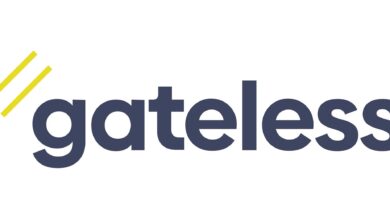What Disability Inclusion Means to Fintech: Personal Stories at the Project Nemo Launch Event

What do you get when you take a roomful of extraordinary people from the disability and fintech communities and add an evening of powerful, inspiring stories, and a desire and hope to make real change in the world? Why, the launch of Project Nemo of course!
After being announced at the Innovate Global Finance Summit (IFGS) on 15 April 2024, the Project Nemo team has seen an unbelievable amount of support from the industry, culminating in a full house at their official launch event held at Barclays Rise – despite train strikes threatening to reign chaos on the evening.
Project Nemo is a new disability inclusion initiative that is seeking to accelerate disability inclusion journeys across the fintech world over the next 12 months. Led by Joanne Dewar, former payments CEO at GPS (now Thredd), the team have worked tirelessly for months to get the project off the ground and start advocating for disability inclusion within the sector.
Dewar said: “More than one in five of the population has some form of disability so nearly every household is impacted in some way. And yet somehow it’s not something that we are thinking about, talking about and addressing in our industry. And that’s what I’m seeking to do – hold the mirror up to the industry and see what we can do about it.”
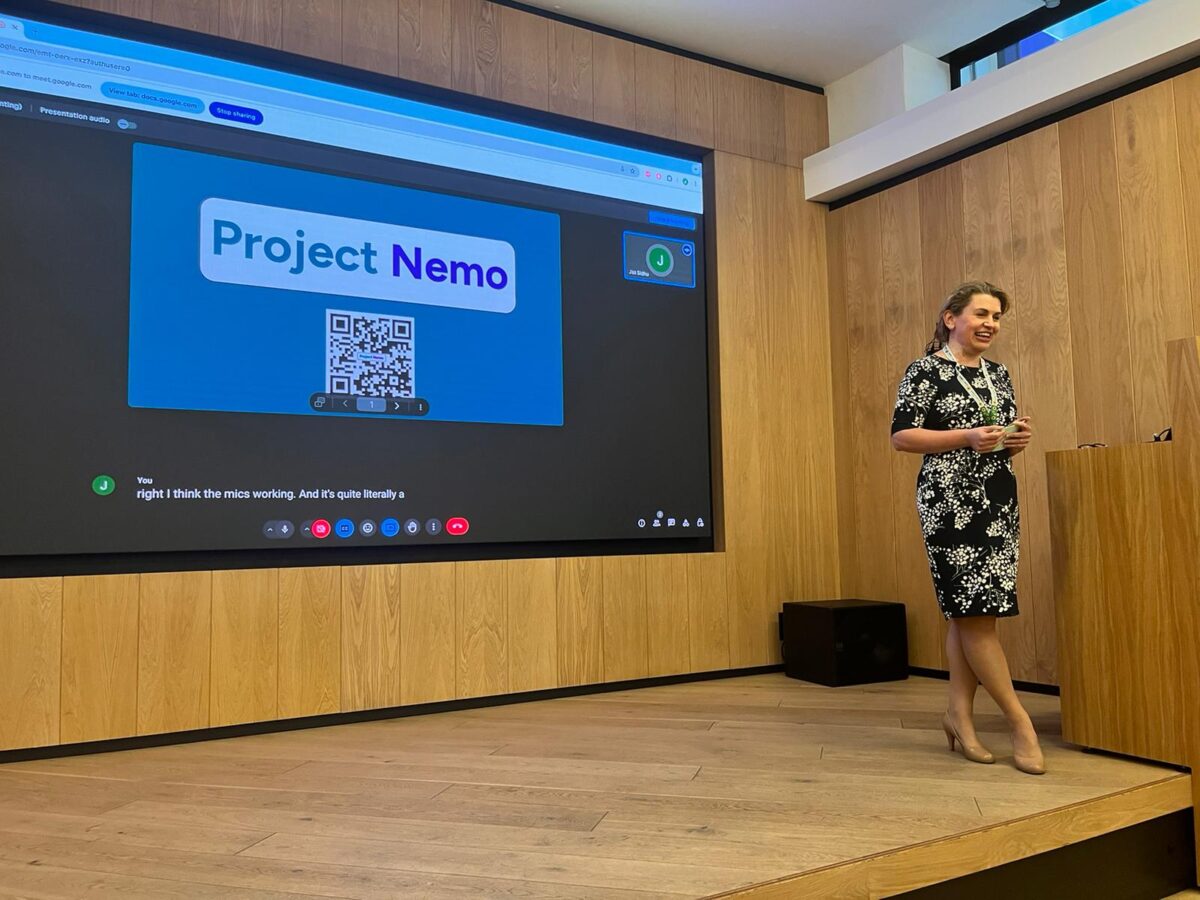
A crowd of supporters
Faces from all across the fintech world gathered together, with banks, trade bodies, consultancies and even an MP all represented in the fray. Joined by members of the disability community, Dewar took the lead in introducing an evening of personal stories and experiences.
Championing accessibility through and through, Dewar began her speech by describing herself for anyone with visual impairments, and stood in front of a Google Meet presentation that captioned her words as she spoke them – showing how simple things can make all the difference when it comes to including everyone.
She kicked off the evening explaining how the project came to be. She said: “The genesis of Project Nemo is really the relationship between myself and Kris Foster [a disability advocate and founding member of Project Nemo.] Kris joined the old GPS team two years ago, coming into an environment that was very tech and corporate. And yet he was able to make such an extraordinary difference to everybody in that organisation. He really made me think and realise just the value and contribution that anyone can make, and the absolute importance of having a very wide, diverse group of people in the business to make it come to life.
“So we’ve created this project to draw the expertise that exists out there. The lived experience of disability service leaders who can tell us what we need to know and what we need to do. It’s about bringing those people into the room of the fintech community, to spark those conversations.”
She continued: “It’s not about charity. It’s about learning from each other and creating a beautiful harmony of people in the working environment.
“We want to get the conversation started and make it understood by not speaking or doing anything, we’re all being disadvantaged, both in our organisations and our futures.”
A room of inspiration
Dewar then opened to the floor, “sharing the mic” and calling on anyone who wanted to speak and share their story with the room.
It was powerful, emotional and electric. Hearing from those with lived experience, be it their own or that of a loved one, and why this project matters to them was so impactful, and showed why Project Nemo needs to exist in the first place.
Having the opportunity to amplify underheard voices cannot be understated. As Foster said: “When you think people speak for us, about us or in front of us and it’s never our voice. Today I can turn around and say that’s not true – this is our voice.”
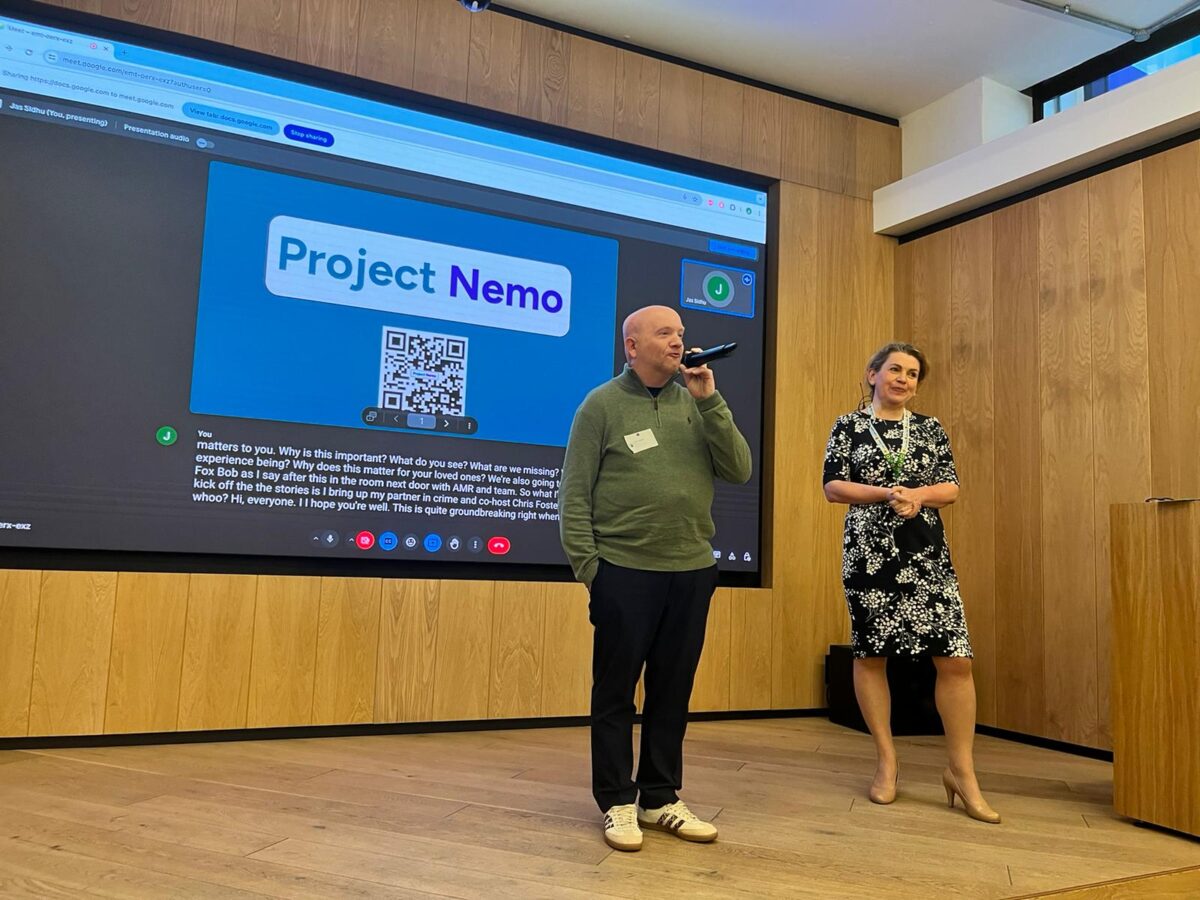

Barriers and Bias
The attendees were quick to hold their hands up and speak, sharing their stories and why they were there. We heard from Shani Dhanda, disability activist and voted Britain’s most influential person with a disability in 2023, who took to the mic to remind everyone of the importance of having these conversations.
She said: “People aren’t usually disabled by their condition, it’s the barriers and the bias that we face that really disable us. And we all contribute to that in many different ways. By default, we’re pretty exclusionary people.
“Another thing to know is, when you think about disability, people can either be born with or acquire conditions and impairments, and the majority of disabled people were not born with their condition – they acquired it.
“So if you aren’t part of the disability community today, then you’re going to be one day. And I’m not saying that to scare you, it’s just the reality. We as a society don’t design for our future selves.
“My question to everybody is: what side of the coin do you want to be on? Do you want to be on the inclusionary side or the exclusionary side? You can be an ally, the bridge between a marginalised community and you can make their voice travel further… that is the power of allyship.”
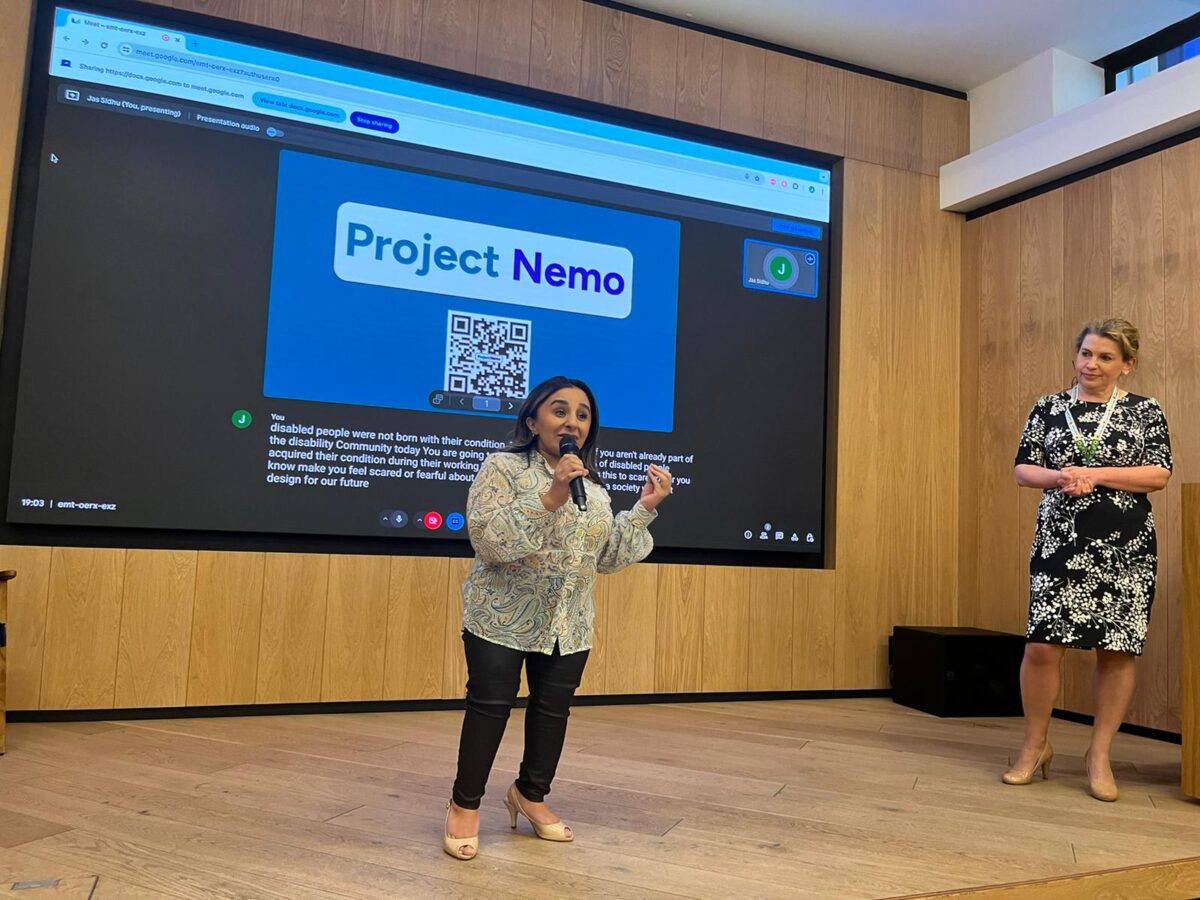

Working together
If you were looking for a reason to get behind disability and inclusion, beyond it being the right thing to do, then plenty were discussed over the course of the evening. Expanding the talent pool, different perspectives and even increased revenue were all given as bonus points to consider the disability community when thinking about operations as a fintech company.
“I’d love to see the fintech industry having a baseline where inclusion and disability inclusion is included within agendas when it comes to policies,” said Nadia Edwards-Dashti, chief customer officer at Harrington Starr, a financial technology recruitment firm.
“It’s not on many agendas, most haven’t even thought about disability as part of inclusion. So if we can get this onto agendas in the next 12 months, we’ll start to switch on to policies and accessibility within the workplace and truly think about the different experiences of people at work.”
Ticking a box
Suresh Vaghjiani, CEO of cloud-based issuer processing platform CLOWD9, said: “I think the problem with fintech looking at disability is that many people look at it as a tick box exercise. Many people think we need to be seen to be doing the right thing, but actually, the advantages that you can bring can outweigh many of the concerns people have. So it’s a big deal because fintech looks at things from a different perspective.
“Fintech is a very inclusive product, It’s supposed to be services that ultimately level the playing field. But how can you level that field if the people who are developing these products and offering the services all come from the same background? If they all have the same perspective? You need to get people within the company who have different perspectives and different backgrounds to ultimately solve problems on a global scale.
“I use this analogy: if you’re making a cake and you have all the same ingredients, everyone’s cake looks different but ultimately tastes the same. If you want to make something different, you need a mix of people to get those different perspectives.
Adding to the conversation on talent, Chloe Smith, MP for Norwich North, gave a national context to the project, and how it can go beyond the fintech world.
She said: “In the UK workforce there’s been a hunt for talent – companies have to look harder than ever before for the talent they need. And what we’re talking about here with Project Nemo is helping talented people come into the workforce and get that opportunity that’s right for them with the right support. This could be really, really big.”
She continued: “I want to see Project Nemo go out from this launch and go out and recruit every organisation in fintech, and maybe even go beyond the industry. By making practical solutions to the problem of how we engage disabled people’s talent in the workforce, having products and services that are inclusive for all – that’s the goal. I think in 12 months we’ll have taken great strides towards it.”
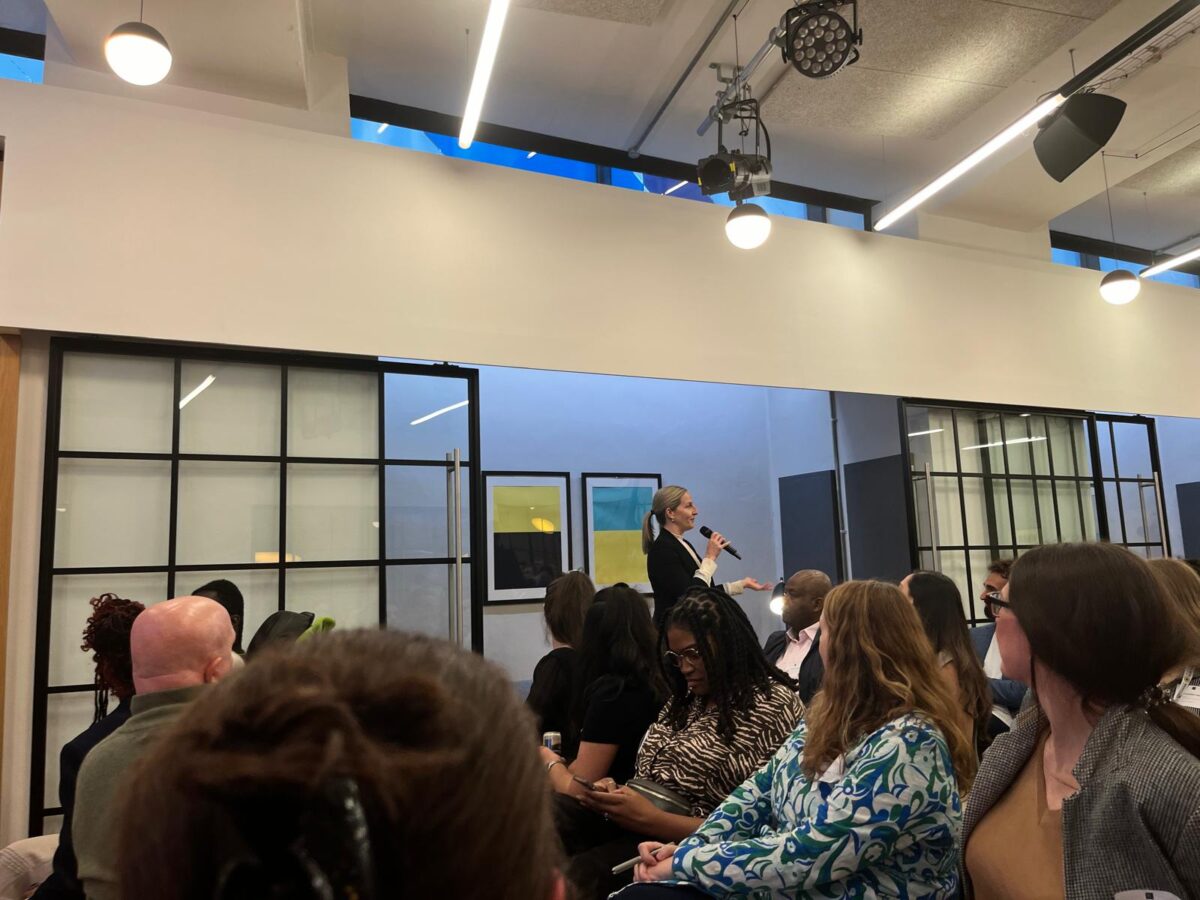

Changing the world
Getting to sit in on these conversations and learn more about how Project Nemo plans to change the world is truly humbling. The appetite for change is palpable, and it’s clear that the major players in the fintech industry feel the same and want to get on board.
As Dewar said to conclude the evening: “We’ve all got the power to change how people experience the world. Why wouldn’t we use it?”




